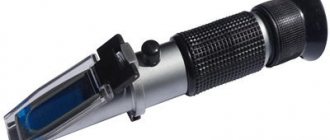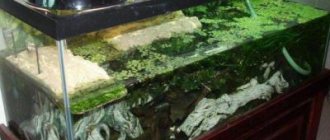Beneficial properties of sea water
The pharmacological features and benefits of sea water are determined primarily by the presence of ions that carry positive and negative charges of natural electricity, a variety of microelements, many metals, as well as the content of biologically active compounds. Sea water is bacteriostatic and is widely used for therapeutic purposes and mineral baths. However, it should be avoided from ingestion even in moderate doses, since it is not a pure substance in its biological composition and can cause harm to the body.
Beneficial properties of sea water include:
- normalization of thermoregulation;
- improves blood circulation;
- increases the number of red blood cells;
- normalizes heart rhythm;
- helps strengthen the immune system;
- promotes healthy sleep;
- prevents hair loss;
- treats skin diseases;
- has a rejuvenating effect;
- increases tone.
These benefits of sea water are determined by its chemical composition, which includes:
- Sodium chloride - the content of this salt has a positive effect on the skin, strengthening and rejuvenating it;
- Calcium - promotes wound healing, stabilizes blood clotting, protects against infections, increases the strength of connective tissue and helps fight depression;
- Magnesium - due to the presence, to a large extent, of this element, sea water for the skin is the best cosmetic product that improves its appearance and eliminates swelling. Magnesium also relaxes muscles, increases metabolism, eliminates nervousness, and prevents the formation of allergies;
- Bromine - has a sedative effect;
- Chlorine - takes part in the formation of blood plasma;
- Potassium - this element is essential in the structure of cells and their functioning;
- Iron is a “transporter” of oxygen for the body;
- Iodine - rejuvenates skin cells, lowers cholesterol, balances hormonal levels and is an essential element for the proper functioning of the brain;
- Silicon - strengthens the tissue structure and allows blood vessels to be in an elastic state, which has a beneficial effect on the prevention and treatment of varicose veins.
Thus, sea water, consisting of various minerals, has a variety of beneficial effects on the human body. It has excellent antibacterial, anti-inflammatory and absorbent properties. It reduces pain in diseases of the musculoskeletal system, has many beneficial effects on the cardiovascular system: improves blood circulation, reduces blood pressure, reduces heart rate. Moreover, the concentration of beneficial microelements helps cleanse the body of toxins. Sea water treats nasal and ear infections, opens pores, keeps skin healthy and nourishes it.
The effectiveness of saline solution during rinsing, use in treatment
Proper irrigation of the nasal mucosa helps speed up recovery and also prevents the development of dangerous complications. Washing has a complex effect on the mucous membrane. Main effects of the procedure:
- disinfection of nasopharyngeal tissues and reduction of the inflammatory process;
- elimination of allergic irritants, reducing the likelihood of an attack of hay fever;
- reduction of swelling of the nasal mucosa;
- relieving congestion, facilitating breathing;
- strengthening the walls of blood vessels, strengthening local immunity.
The quality and effectiveness of the procedure directly depends on compliance with the proportions of solution preparation and washing technology. Irrigation with sea salt is suitable for both adults and children. This is a safe but effective method of treating a runny nose.
Saline solution enhances the metabolic processes of cells in the nasal mucosa. This leads not only to faster recovery, but also to their strengthening and restoration.
How to make sea water at home
Sea water is inexpensive and easy to produce. It is a combination of salts mixed with water and gases. Although the composition of seawater varies depending on geographic location, mixing sea salt with tap water most closely duplicates it at home. Sea salt contains minerals directly from the sea, and tap water contains rich natural minerals such as calcium.
Consider preparing sea water at home.
- It is necessary to determine the amount of sea water that is needed based on its application.
- Pour tap water into a mixing container.
- Bring it to room temperature.
- Add sea salt, stirring slowly until completely dissolved. According to common practice, the proportions are taken at the rate of 35-40 grams of sea salt per liter of water.
Sea salt is widely available in most grocery stores and pharmacies, but if you have access to the sea, you can try evaporating the seawater and using fresh salt.
Storage conditions
The storage conditions for sea water are different from fresh water. So, after 20-30 days, the beneficial microelements of sea water evaporate.
When storing this aqueous substance, the following rules should be observed:
- sea water should not be boiled. This procedure destroys most of its properties;
- sea water is stored in a shaded, cool place to avoid the appearance of algae and the disappearance of useful elements;
- Freezing water is also not recommended. At what temperature sea water freezes will be based on the degree of its salt content - this cannot be determined unambiguously. The average temperature is considered to be -1.9 C;
- When storing sea water at home, it is imperative to use airtight containers.
How to Make Sure Saline Is Safe
It is important to try to prevent any bacteria or other contaminants from entering the solution when making your homemade saline solution.
The following tips will help prevent contamination of the saline solution:
- use only clean materials to make the saline solution;
- Avoid touching the solution with your fingers or hands;
- use a thoroughly cleaned bottle for each new batch of saline solution;
- Use clean, dry droppers and rinse bottles when using irrigation solution.
Despite a person's best efforts, contaminants can still end up in the solution. In this case, discard it if it looks cloudy and dirty.
Application of sea water
Historically, seawater has had many possible uses. All of these therapeutic applications are based on the same concept of renewal, purification and regeneration of the internal fluid environment, as well as maintaining vital balance.
Sea water is the best support and regenerator for all cellular mechanisms.
It is widely used in such “popular” therapeutic areas as:
- - dermatology: burns, psoriasis, atopic eczema, acne, itching, urticaria, chronic dermatoses, skin rashes, abscesses, alopecia and herpes;
- - respiratory problems: chronic ENT infections, tonsillitis, bronchitis, asthma, complications of pulmonary tuberculosis;
- — gastroenterology: gastroenteritis, dyspepsia, gastric and duodenal ulcers, diarrhea, hemorrhoids, hepatitis, functional colitis, spasmodic colitis;
- — endocrinology: dysfunction and diseases of the thyroid gland;
- - diseases of bones and joints: rickets, osteoporosis, fracture healing, pathological double compatibility, scoliosis, arthritis, rheumatism, gout, sports injuries.
How to properly rinse your nose with sea water
The nose is a natural air filter. It reduces the amount of contact the body has with bacteria, allergens and viruses.
Rinsing the nose for hygienic purposes has the following preventive effects on the body:
- allergy prevention;
- prevention of any inflammatory diseases of the respiratory tract;
- strengthening the immune system;
- ease and freedom of breathing.
We'll look at how to make sea water for rinsing your nose at home below.
The water should be soft and warm (36-40 degrees). Add 1-2 teaspoons of sea salt to 1 liter of water and stir until it is completely dissolved.
An important factor is the frequency of flushing. For prevention, 2-3 times a week for several weeks is enough. For treatment, rinse your nose with sea water at least 3 times a day. The course of treatment depends on the severity of the disease and varies from 10 days to 6 weeks, respectively.
Methods for rinsing the nose can be as simple as rinsing with water from the palm by drawing in, or from a syringe or special watering cans.
When performing this procedure, you must be careful to ensure that no fluid enters the middle ear. This can cause the most unpleasant disease like otitis media.
Review of medications
Sea water is used as a basis for the production of many medicines suitable for nasopharyngeal irrigation. The systematic use of solutions removes pathological secretions and pathogenic flora from the paranasal sinuses and canals. Effective medications based on sea water include:
- "Marimer" - normalizes the condition of the ciliated epithelium and accelerates the elimination of allergens, which leads to the restoration of physiological processes. Reduces the viscosity of mucus, which facilitates its evacuation from the nasal canals. Used in the treatment of viral and bacterial inflammation of the ENT organs;
- "Aqualor" is a concentrated saline solution that accelerates the liquefaction of viscous secretions in the nasopharynx. Used for infectious and inflammatory processes in the ENT organs provoked by bacterial and viral pathogens;
- "Aqua Maris" is an isotonic solution that increases the restoration of mucociliary clearance. It is used in the treatment of inflammatory processes in the paranasal sinuses and nasal canals.
All of the above drugs can be used in pediatric therapy, as well as for the treatment of women during gestation. They practically do not cause adverse reactions and complications if the rules of nasopharyngeal irrigation are followed.
As practice shows, rinsing the nose with salt water is the most effective method of cleansing the nasal passages of pathogenic contents. However, the opinion that such a procedure should be used only when an inflammatory process occurs in the nasal cavity and difficulty breathing is erroneous.
Even completely healthy people are recommended to rinse their nose
salt. This is necessary to maintain the normal functioning of the respiratory system. However, now few people use this procedure as a method of personal hygiene. Moreover, most people have no idea how to rinse their nose with salt water.
But in any case, before moving directly to the procedure of cleansing the nasal cavity, you should find out all the nuances and subtleties of this process.
Gargling with sea water
A sore throat is quite common and can be a symptom of a viral or bacterial infection (pharyngitis), a symptom of allergies, poor hydration, muscle tension, gastroesophageal reflux disease (GERD), HIV infection or a tumor. Most painful symptoms, however, are caused by viruses or bacteria. In such cases, you can gargle with sea water, which is an easy and effective home remedy to soothe a sore throat due to various reasons.
Making sea water for gargling as a therapeutic agent is very simple:
- 1 liter of water is poured into the container and heated to 30-40 degrees.
- Afterwards, sea salt is added at the rate of one teaspoon per 200 milliliters of water. You can also add half a teaspoon of baking soda.
- Mix the contents well in the container until the mixture is completely dissolved.
- Rinse with the solution for thirty seconds several times in a row.
- The remaining contents can be stored in the refrigerator with the lid tightly closed. Before rinsing, heat the solution until warm and stir thoroughly.
This water will help reduce swelling in the throat by removing fluid from the tissues; it also acts as an antibacterial agent and serves as a preventive measure for diseases associated with the throat and oral cavity.
Carrying out the washing procedure
You need to know how to properly rinse your nose with a prepared solution based on sea salt. Compliance with a sequence of simple actions is a condition for alleviating the condition and curing a runny nose.
- Blow your nose thoroughly, freeing the nasal cavities from mucus as completely as possible.
- If there is severe congestion with a runny nose, it is advisable to first apply vasoconstrictor drops and then blow your nose.
- Tilt your head to the side and use a syringe to pour a warm solution, diluted according to all the rules, into the upper nostril. In this case, fluid should flow freely from the lower nostril.
- Repeat with a tilt in the other direction.
There are special devices in the shape of a teapot with a long spout that can easily fit into the nostril. When you tilt your head and pour the solution into the upper nostril, the liquid should flow out from the lower.
You can purchase a convenient Aqua Maris device, which will make the rinsing procedure easier even for small children.
For frequent rhinitis and sinusitis, it is advisable to purchase the Dolphin device.
Use it in an inclined position strictly according to the instructions.
The use of sea water in cosmetology
Sea water helps to successfully fight hair loss and skin diseases, promotes weight loss and rejuvenates the body, and has a beneficial effect on facial skin, so it is natural that it is used in the cosmetics industry.
The mineral content of seawater has long been valued for its rejuvenating effects on skin cells and maintaining their hydration. Swimming in sea water is a standard procedure at any SPA salon.
Thalassotherapy has been popular for many years and is explained by the fact that plasma in seawater and blood plasma have almost identical chemical composition in terms of mineral and trace element levels. Sea water is widely used for facial care.
The effect of sea water on hair
Is sea water beneficial or harmful for hair? This question puzzles many vacationers on the seas. Some people note a loss of elasticity and silkiness in their hair after swimming in salt water. However, many experts claim that sea water is a natural shampoo, containing potassium and selenium, which are especially important for hair growth. It absorbs excess oils present on the hair, making it smooth. It also acts as an exfoliating scrub, drawing excess moisture from the scalp, which helps get rid of dandruff. Swimming in sea water increases hair volume.
Why you shouldn't drink sea water
The question of whether it is possible to drink sea water comes to the mind of everyone who has been to the sea or accidentally taken a sip of this water. Seawater is three times saltier than human blood, making it impossible to safely digest. By consuming sea water, your metabolism will go into crisis mode. Body cells will become dehydrated. Another reason why you should not drink sea water is that the body needs to get rid of excess salt through the kidneys, which require fresh water for normal functioning. But if there is too much salt in the body, the kidneys cannot get enough fresh water to dilute the salt, and the result is kidney failure, seizures, organ poisoning, and dehydration.










